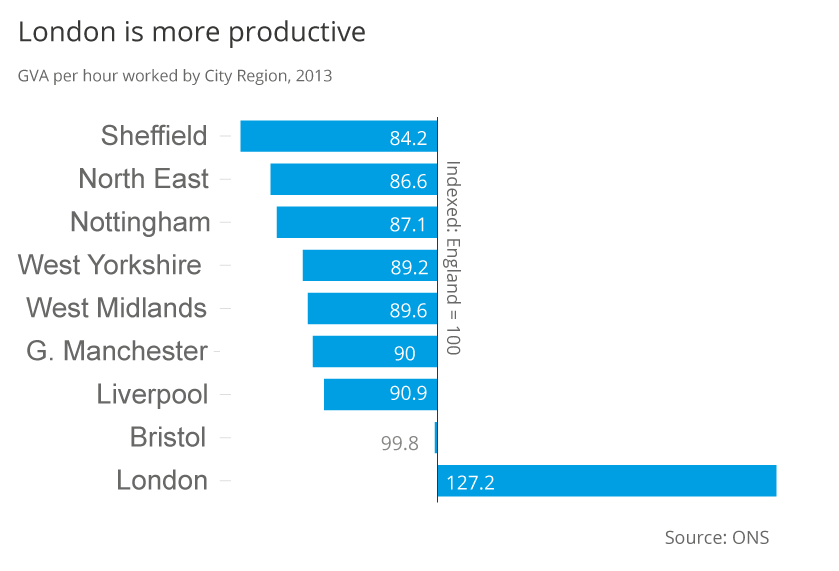UK GDP: London leads the way when it comes to economic growth

Official data released today has shown that the UK economy bounced back in the second quarter of this year, growing by 0.7 per cent, up from 0.4 per cent in the first quarter and in line with economists' expectations.
But which cities are the main drivers of this, and who reaps the rewards?
Londoners lead the way

Gross value added (GVA) is a way of measuring how much each city contributes to the UK economy.
London leads the way based on how much each hour worked adds to the economy – contributing far more than other cities such as Liverpool and Manchester.
No wonder chancellor George Osborne is pushing for more devolution as one way of replicating London's economic success in other cities throughout the UK.
… and they're rewarded by high disposable income
[custom id="60"]Londoners contribute the most to the economy – so it's only right their hard work is rewarded by higher levels of disposable income. Eurostat, the statistical body of the EU, compares countries using the purchasing power consumption standard (PPCS), which adjusts currencies by their spending power to allow for comparisons across economies.
The UK has the greatest disparity in the EU, with Londoners earning an average of 23,500 PPCS units, and those in the West Midlands only 12,900. Removing London significantly shrinks the gap: second-placed Surrey, East and West Sussex (as one region) has an average of 19,600.
"Of the … sub-regions, Luxembourg had the highest disposable income in 2011, followed by Oberbayern in Germany, and by Inner London in the United Kingdom," the ONS reckons
"[2014] was the first year where inner London did not have the highest disposable income across the EU since the start of 2000."
The UK economy's onto a strong winning streak
Second quarter growth of 0.7 per cent marks the UK economy's 10th consecutive quarter of expansion – meaning the UK economy is experiencing its best winning streak since 2008.

And economists think the good times will keep on rolling.
"The economic fundaments look broadly positive for the UK, particularly for the consumer, and we believe growth will be healthy through the second half of the year," Howard Archer, chief economist at IHS, said.
But it's growing lopsidedly
While Britain's economy has managed to rebound from the financial crisis, it has done so somewhat lopsidedly. The services sector makes up around 75 per cent of GDP, while manufacturing contributes just 10 per cent.

The economy is increasingly reliant on the dominant services sector, comprising industries ranging from insurance and banking to schools, for growth.
At the same time, manufacturing growth has remained sluggish, meaning the Tories are yet to deliver on their promises to re-balance the economy made back in 2010.